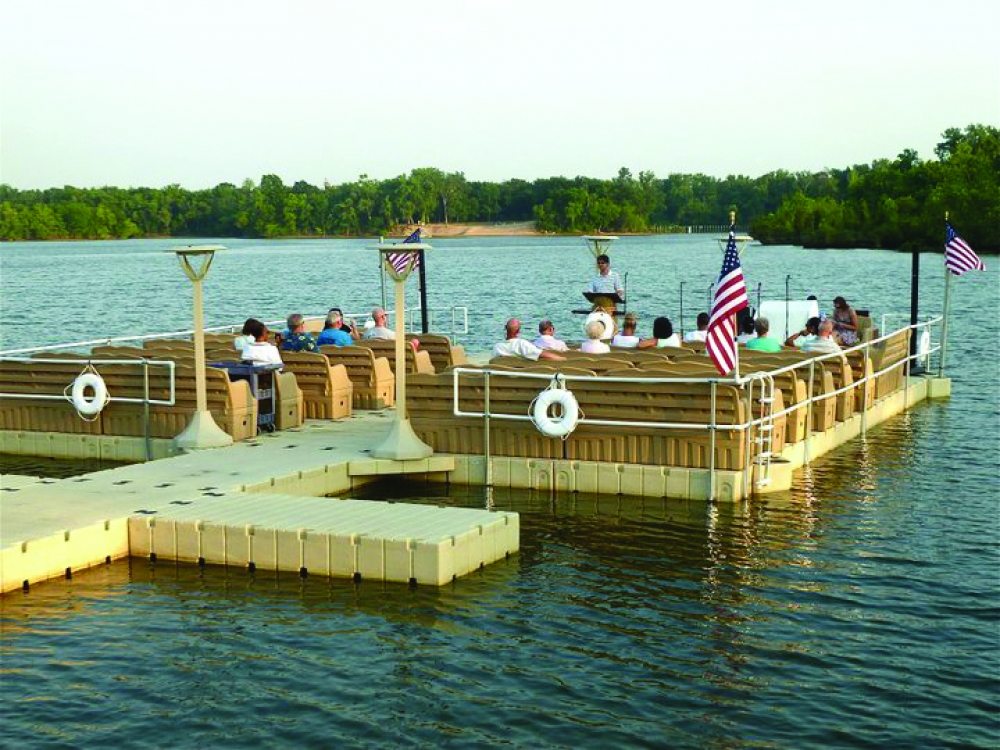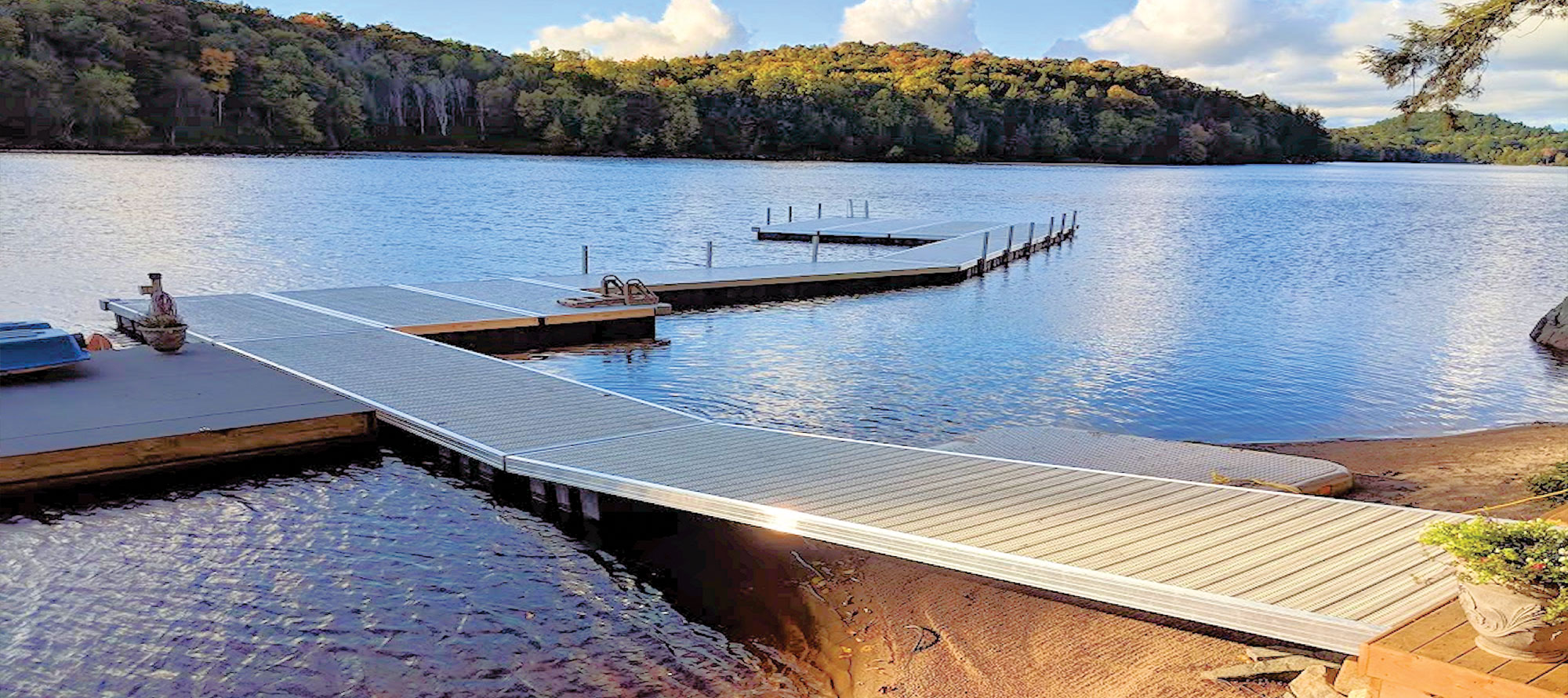Locate the Perfect Floating Dock Builder to Bring Your Beachfront Vision to Life
Locate the Perfect Floating Dock Builder to Bring Your Beachfront Vision to Life
Blog Article
Floating Docks: The Ideal Option for Versatile Water Access
Floating docks present an engaging remedy for a selection of water accessibility needs, supplying flexibility that goes beyond conventional mooring alternatives. The modular nature of floating docks promotes customization, providing to certain requirements.
Advantages of Floating Docks
Floating docks deal many benefits that improve water access for various applications. Their ability to drop and increase with altering water levels makes them especially advantageous in atmospheres with changing trends or seasonal variations. This flexibility makes sure that vessels can easily tie without problem for the water's deepness, giving a reliable system for recreational, business, and commercial usages.
Furthermore, floating docks are commonly created from long lasting products that stand up to corrosion, making them suitable for long-term use in aquatic atmospheres. Their installment is typically less intrusive than standard set docks, reducing the ecological effect and facilitating quicker implementation (floating dock services). This adaptability permits for easier relocation or reconfiguration according to user requirements or ecological adjustments
Safety is an additional essential benefit; floating docks can provide steady access for people getting off or boarding from watercrafts and decrease the threat of mishaps connected with unpredictable surfaces. They can be created to fit a range of accessories, such as cleats and fenders, enhancing performance. On the whole, floating docks represent an efficient remedy for boosting water access across diverse sectors while advertising security and ecological sustainability.

Kinds Of Floating Docks
Various types of floating docks accommodate different needs and environments, each created with particular functions to maximize functionality. The most usual kinds include modular docks, which include interlocking sections that permit very easy customization and development. These docks are suitable for entertainment usage, as they can be tailored to fit numerous watercraft sizes and water conditions.
An additional popular choice is the stationary floating dock, which stays anchored in position but drifts with transforming water degrees. floating docks. This type is particularly fit for areas with very little tidal variations, supplying steady access for angling or swimming. In addition, there are drive-on docks, which include a sloped style that allows boats to conveniently drive on and off, making them suitable for personal watercraft and smaller sized vessels
For business applications, durable floating docks are offered, constructed from reinforced products to withstand significant loads and rough aquatic atmospheres. Last but not least, environmentally friendly floating docks utilize sustainable products and designs to reduce ecological impact, typically including attributes like plants to sustain neighborhood wildlife. Understanding the numerous sorts of floating docks guarantees that users can choose the most appropriate remedy for their details needs.
Installation Process Overview
A successful installation of floating docks requires mindful planning and interest to information to make certain optimal performance and safety. The preliminary action involves examining the website conditions, including water depth, existing, and potential barriers. This assessment notifies the selection of the appropriate dock products and layout tailored to the particular atmosphere.
Following, acquiring required permits is important, as several territories have guidelines relating to building and construction on water bodies. Once approvals are secured, the installment can proceed. Begin by preparing the structure, which may involve anchoring systems or pilings tailored to the dock kind and local conditions.
Complying with the structure configuration, put together the dock sections according to supplier specs. Make sure that all elements are safely secured and aligned to endure environmental stresses. Setting the dock in the assigned area, guaranteeing it is level and steady.

Upkeep Tips and Ideal Practices
After the setup process is complete, ongoing maintenance plays a crucial duty in making sure the longevity and capability of floating docks. Normal evaluations ought to be conducted to determine any type of signs of wear, wear and tear, or damages - floating dock services. Inspect for any loose installations, splits, or splitting up in the dock sections, as these can jeopardize architectural stability
Cleansing the Get the facts dock is essential to eliminate particles, algae, and other build-up that can impact its look and safety and security. Make use of a mild stress clean regularly to keep sanitation without causing damage to the surface. Additionally, applying a protective sealant every couple of years can aid improve longevity and resist environmental wear.
Take notice of the mooring lines and supports, ensuring they are safe and secure her comment is here and free from rust. Change any kind of degraded components quickly to avoid dangers. Seasonal changes might additionally be needed; during extreme weather, rearranging or enhancing the dock can prevent damage.
Applications for Floating Docks
Floating docks serve a plethora of applications, accommodating both recreational and business requirements. In leisure settings, they offer seamless accessibility to waterways for tasks such as boating, angling, and swimming. Their flexible nature enables installation in differing water degrees, making certain steady and safe access no matter of tidal variations.
Commercially, floating docks are vital for marinas and waterside companies. They promote the docking of vessels, enabling efficient packing and discharging of items. Their modular design enables easy growth or reconfiguration to suit changing business demands, making them suitable for boat rentals, scenic tour procedures, or angling charters.
Additionally, floating docks are made use of in environmental applications such as aquatic study and environment restoration. They can function as systems for scientific researches, keeping track of water quality, or carrying out wild animals surveys without disturbing delicate ecosystems.
In industrial contexts, floating docks are used in building and construction projects, providing access to hard-to-reach locations for devices and employees. Their convenience, durability, and very little influence on the atmosphere make them an optimal selection for a wide variety of applications, enhancing both functionality and access in different water-based environments.
Conclusion
To conclude, floating docks stand for an optimum service for varied water gain access to requires, owing to their versatility, sturdiness, and modular design. These frameworks assist in secure mooring for different applications while lessening ecological impact during setup. The minimized upkeep needs better boost their usefulness. Floating docks offer as a useful property for entertainment, industrial, and ecological jobs, making certain sites trusted access to waterways and advertising lasting techniques in water settings.
Floating docks existing an engaging service for a range of water access needs, offering convenience that goes beyond standard mooring alternatives.Floating docks deal many advantages that enhance water accessibility for numerous applications. Overall, floating docks stand for a reliable service for improving water gain access to across varied markets while promoting safety and security and environmental sustainability.
One more popular choice is the stationary floating dock, which continues to be secured in area but drifts with altering water levels.In conclusion, floating docks represent an optimum remedy for diverse water gain access to needs, owing to their adaptability, resilience, and modular style.
Report this page